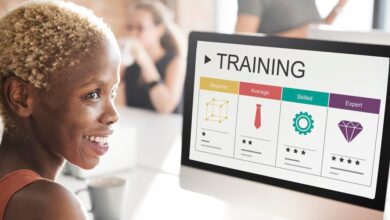10 Must Have Apps For Students

With the academic year in full swing, learners and students at schools and higher education institutions throughout the country are starting to take stock of the academic mountain they need to climb in the months to come. In 2016, this mountain has become much easier to scale, thanks to some fantastic applications developed to make the mastering of coursework and organising one’s life much easier, an expert says.

Wonga Ntshinga, Senior Head of Programme at the Faculty of Information and Communications Technology (ICT) at The Independent Institute of Education, SA’s leading private higher education institution, says there are thousands of digital applications that can improve the study experience and lead to better results.
“These apps assist students and instructors to write assignments and notes; plan and complete lessons and projects, avoid distractions and revise ahead of exams,” he says.
Ntshinga says however that finding and evaluating apps is a massive distraction in itself, and therefore recommends these tried and tested platforms:
Self Control for Study is an app that will help you focus on your studies, away from the social networks.
“It blocks certain websites which means your study time is not interrupted by the temptation of quickly checking the status updates of your 2570 Facebook friends. It’s a great little helper for parents as well,” he says.
The app still allows for basic telephone functions, such as phone calls and SMS, to remain available. However Ntshinga says it is also still useful to set one’s mobile to airplane mode while working, to stop incoming messages from breaking your concentration.
Pages helps students and learners to create summaries, projects and speeches.
“With this app, you can insert diagrams and internet images to make summaries fun and easy to get under your knee,” says Ntshinga.
Penultimate is another app that turns the dreary creative, and helps you craft drawings and diagrams.
DropBox and Google Drive allow you to upload files to the cloud so that you can easily retrieve them whenever you need them. They are also valuable backup resources, which means that “the dog ate my homework” excuse is no longer necessary.
“Take note however that downloading videos can be expensive because of data charges, so it might be necessary to view such videos in libraries or other areas where free Wi-Fi is available,” Ntshinga warns.
iTunes U is a fantastic app which provides access to a myriad of courses from top higher education institutions across the world.
“Instructors can use this app to prepare lessons, collect and grade assignments from students, host one-on-one or group discussions, and annotate PDF assignments,” says Ntshinga.
Studios is a useful app that allows you to keep all your balls in the air.
“You can use this app to store details about your next assessments, assignment due dates, and lecture details including time, lecturer, and location. The app will then remind and alert you about your entry in advance.”
Similarly, Any.do will help you organise your tasks and keep your academic life together in one place. You can use the app to capture ideas and to-do lists, and to collaborate with fellow classmates.
Dictionary is a free English dictionary app for Android phones which can even be used offline.
TED provides access to talks from some of the world’s most fascinating and insightful people, from educators to music legends. It is a must-have app for students and learners serious about broadening their horizons, says Ntshinga.
Good old WhatsApp, used so efficiently in our daily lives to communicate with friends and family, is actually also a brilliant study tool, he adds.
“It allows you to send unlimited images, video and audio messages to your WhatsApp study group. One good way of using the app, for instance, is to record a tutorial and pass it on to your peers.”
Mobile devices have allowed us to look for information on the web, watch videos, search for directions and write emails, just as we would on a computer, says Ntshinga.
“But they really can make a major difference to your academic success as well, if used correctly and efficiently.”




